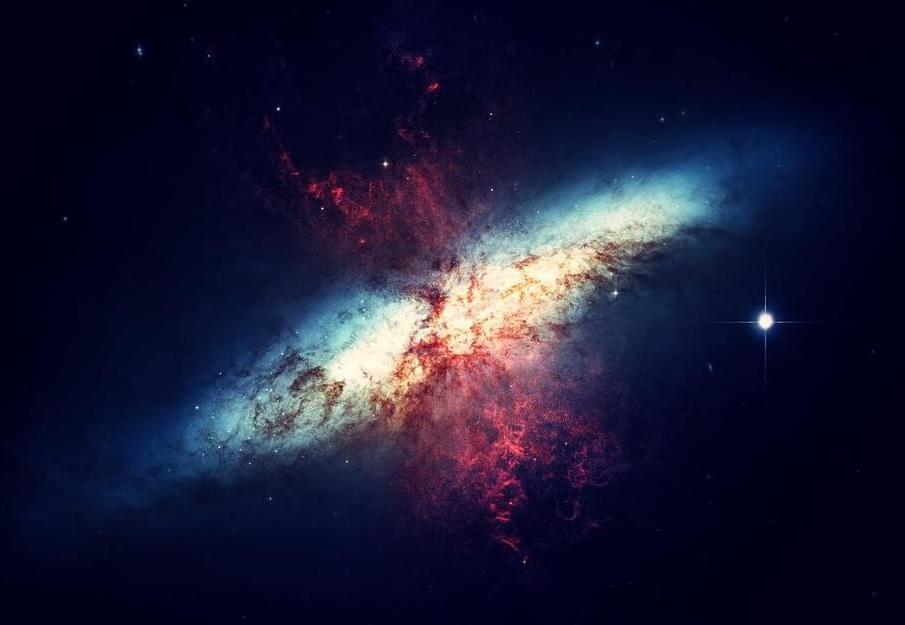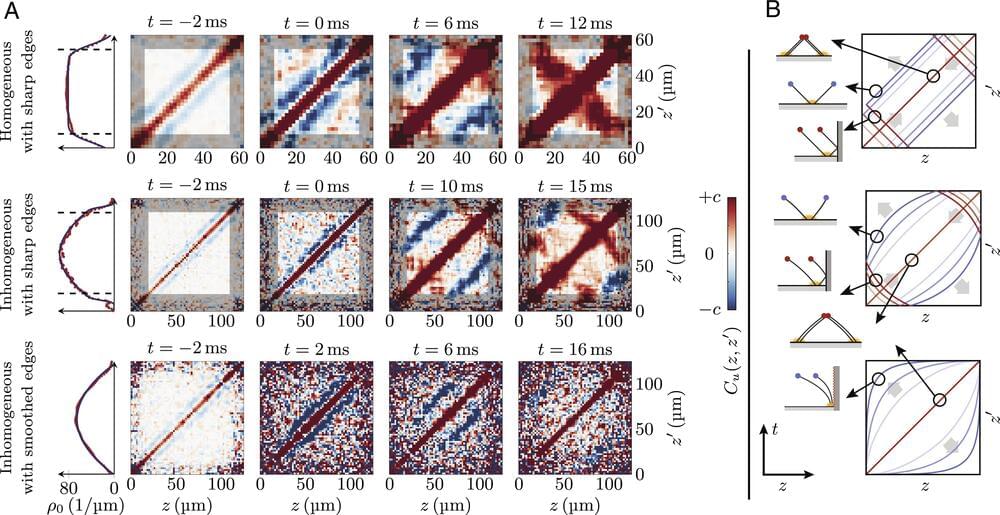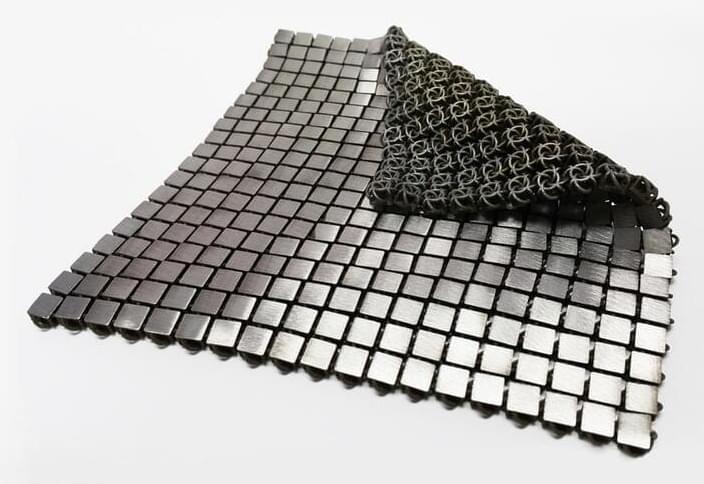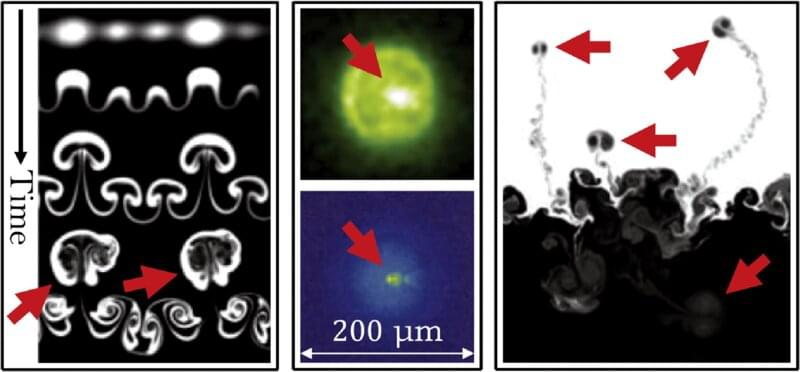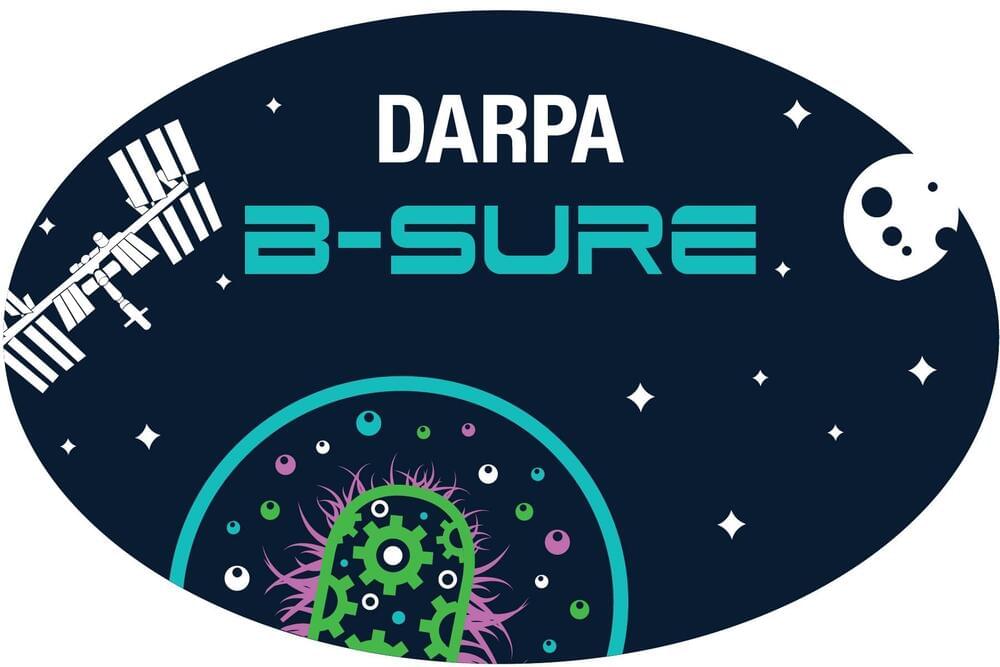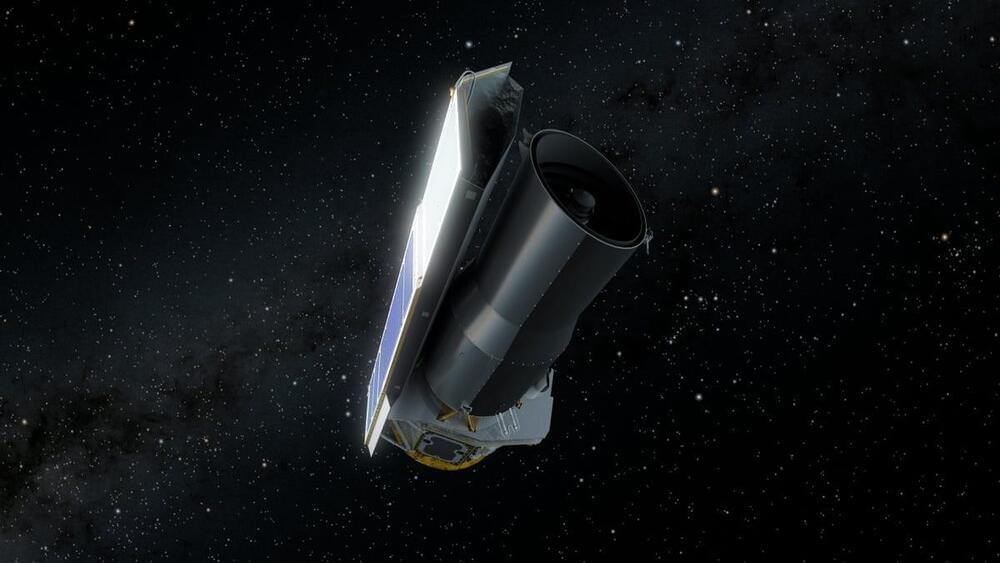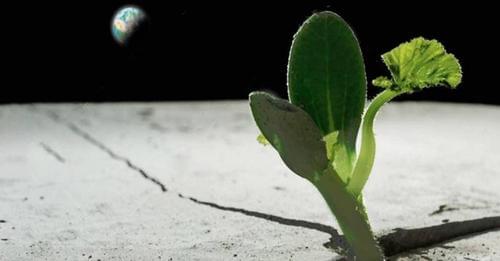Archive for the ‘space’ category: Page 230
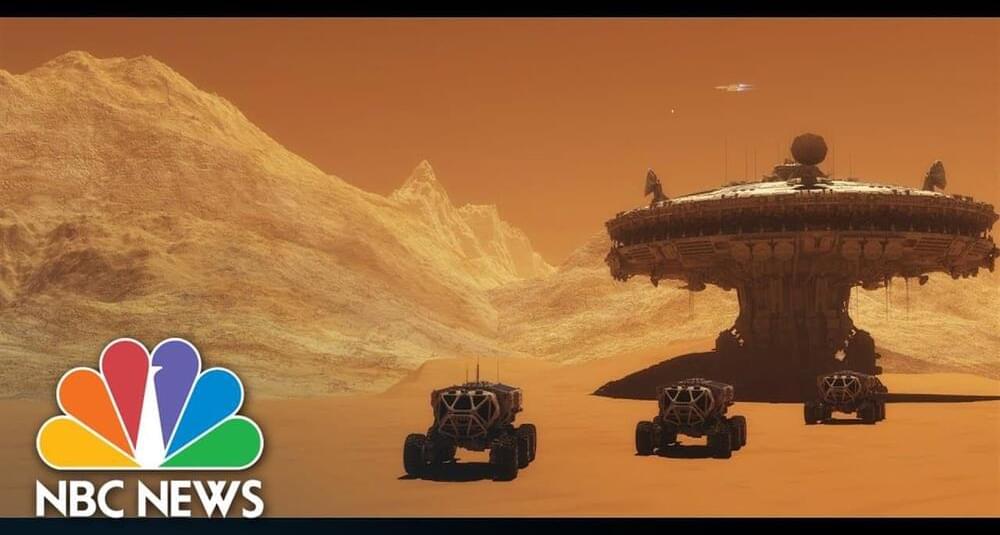
A decent vid concerning the current space ideas. There are just a few misconceptions (You do not need the Moon to get to Mars) and generalities (There are many more than thousands of asteroids), but otherwise not bad.
Modern space exploration and the global competition to Mars sparks civil and military innovation.
May 21, 2023
Experimental observation of curved light-cones in a quantum field simulator
Posted by Saúl Morales Rodriguéz in categories: quantum physics, space
We investigate signal propagation in a quantum field simulator of the Klein–Gordon model realized by two strongly coupled parallel one-dimensional quasi-condensates. By measuring local phononic fields after a quench, we observe the propagation of correlations along sharp light-cone fronts. If the local atomic density is inhomogeneous, these propagation fronts are curved. For sharp edges, the propagation fronts are reflected at the system’s boundaries. By extracting the space-dependent variation of the front velocity from the data, we find agreement with theoretical predictions based on curved geodesics of an inhomogeneous metric. This work extends the range of quantum simulations of nonequilibrium field dynamics in general space–time metrics.
May 20, 2023
Physics: The big questions of our existence in under an hour
Posted by Paul Battista in categories: mathematics, particle physics, space
SABINE HOSSENFELDER: My name is Sabine Hossenfelder. I’m a physicist and Research Fellow at the Frankfurt Institute for Advanced Studies, and I have a book that’s called “Existential Physics: A Scientist’s Guide to Life’s Biggest Questions.”
NARRATOR: Why did you pursue a career in physics?
HOSSENFELDER: I originally studied mathematics, not physics, because I was broadly interested in the question how much can we describe about nature with mathematics? But mathematics is a really big field and I couldn’t make up my mind exactly what to study. And so I decided to focus on that part of mathematics that’s actually good to describe nature and that naturally led me to physics. I was generally trying to make sense of the world and I thought that human interactions, social systems are a pretty hopeless case. There’s no way I’ll ever make sense of them. But simple things like particles or maybe planets and moons, I might be able to work that out. In the foundations of physics, we work with a lot of mathematics and I know from my own experience that it’s really, really hard to learn. And so I think for a lot of people out there, the journal articles that we write in the foundations of physics are just incomprehensible.
May 19, 2023
NASA’s Wild Fabric Is Basically Chain Mail From the Future
Posted by Quinn Sena in categories: futurism, space
May 19, 2023
Demystifying vortex rings in nuclear fusion and supernovae
Posted by Paul Battista in categories: engineering, nuclear energy, physics, space
Better understanding the formation of swirling, ring-shaped disturbances—known as vortex rings—could help nuclear fusion researchers compress fuel more efficiently, bringing it closer to becoming a viable energy source.
The model developed by researchers at the University of Michigan could aid in the design of the fuel capsule, minimizing the energy lost while trying to ignite the reaction that makes stars shine. In addition, the model could help other engineers who must manage the mixing of fluids after a shock wave passes through, such as those designing supersonic jet engines, as well as physicists trying to understand supernovae.
“These vortex rings move outward from the collapsing star, populating the universe with the materials that will eventually become nebulae, planets and even new stars—and inward during fusion implosions, disrupting the stability of the burning fusion fuel and reducing the efficiency of the reaction,” said Michael Wadas, a doctoral candidate in mechanical engineering at U-M and corresponding author of the study.
May 19, 2023
This robot could pick 66% more berries per day than a human working an 8-hour shift
Posted by Shailesh Prasad in categories: robotics/AI, space
A pair of harvesting robots are picking raspberries in Portugal, demonstrating the ability of tech to help combat seasonal labor shortages.
Sea of Green is a marijuana growing method in which numerous little plants are produced in close proximity per square meter of area. The advantage of developing this way is that plants spend less time in the vegetation stage while still creating as many bud sites per area volume. Buds mature faster in SOG, resulting in an additional yield yearly.
Furthermore, clones are typically used in SOG. This guarantees that all of the plants have the same characteristics (growing speed and height.) and that your SOG grows to have a lovely even canopy. You can also grow weed seeds for sale; however, only seeds from the same strain should be used. Avoid tall, lanky Sativa if possible. Also, keep your plants at the same level beneath your grow lights to maintain consistent development.
May 19, 2023
Facebook: Three university teams and an industry performer will explore and take initial steps to mitigate risks associated with manufacturing capabilities that rely on biological processes in resource-limited environments
Posted by Genevieve Klien in categories: biological, space
Including space.
The DARPA Biomanufacturing: Survival, Utility, and Reliability beyond Earth (B-SURE) program aims to address foundational scientific questions to determine how well industrial bio-manufacturing microorganisms perform in space conditions. http://ow.ly/3Nya50On2za
May 19, 2023
Company Wants to Launch Mission to Resurrect Space Telescope 185 Million Miles From Earth
Posted by Liliana Alfair in category: space
Mission to resurrect space telescope 185 milion miles from Earth.
The ambitious plan is the first attempt of a private company to revive expired astronomical tools so far way.
May 19, 2023
Growing Plants in Space: How NASA and China are Pioneering Fresh Food and Mental Health for Astronauts
Posted by Liliana Alfair in categories: biological, space
In January 2019, China made history by becoming the first country to land a spacecraft on the far side of the moon. As part of this mission, the Chang’e-4 lunar rover carried a small biosphere with six living organisms, including cotton seeds. While the other plants in the biosphere died quickly, the cotton seeds produced a small plant, which grew two leaves before it died. Researchers then created a 3D simulation of the cotton plant using data from the experiment, which revealed that the cotton plant grew much better than expected before it died from the cold.
This experiment marked the first time that humans have attempted to grow plants on the moon. Growing plants in space is an important part of NASA’s vision of long-term space travel. If astronauts are to embark on missions lasting months or years, they will need fresh produce to supplement their diet. While vitamins and other supplements are effective for short-term missions, the nutrients in supplements and ready-made meals can break down over time. Radiation in space can speed up this process. In addition, fresh vegetables would give astronauts more nutrients and improve the taste of their food. Furthermore, growing plants in space would enable astronauts to have access to fresh, uncooked food, reducing their reliance on pre-cooked meals.
However, growing plants in space is not just about ensuring astronauts have access to fresh food. NASA is also interested in how growing plants can impact the psychological well-being of astronauts. Studies have shown that access to plants and green spaces can have a positive impact on mental health, and astronauts on the International Space Station have reported that fresh flowers and gardens can create a beautiful atmosphere and make them feel more connected to Earth.
